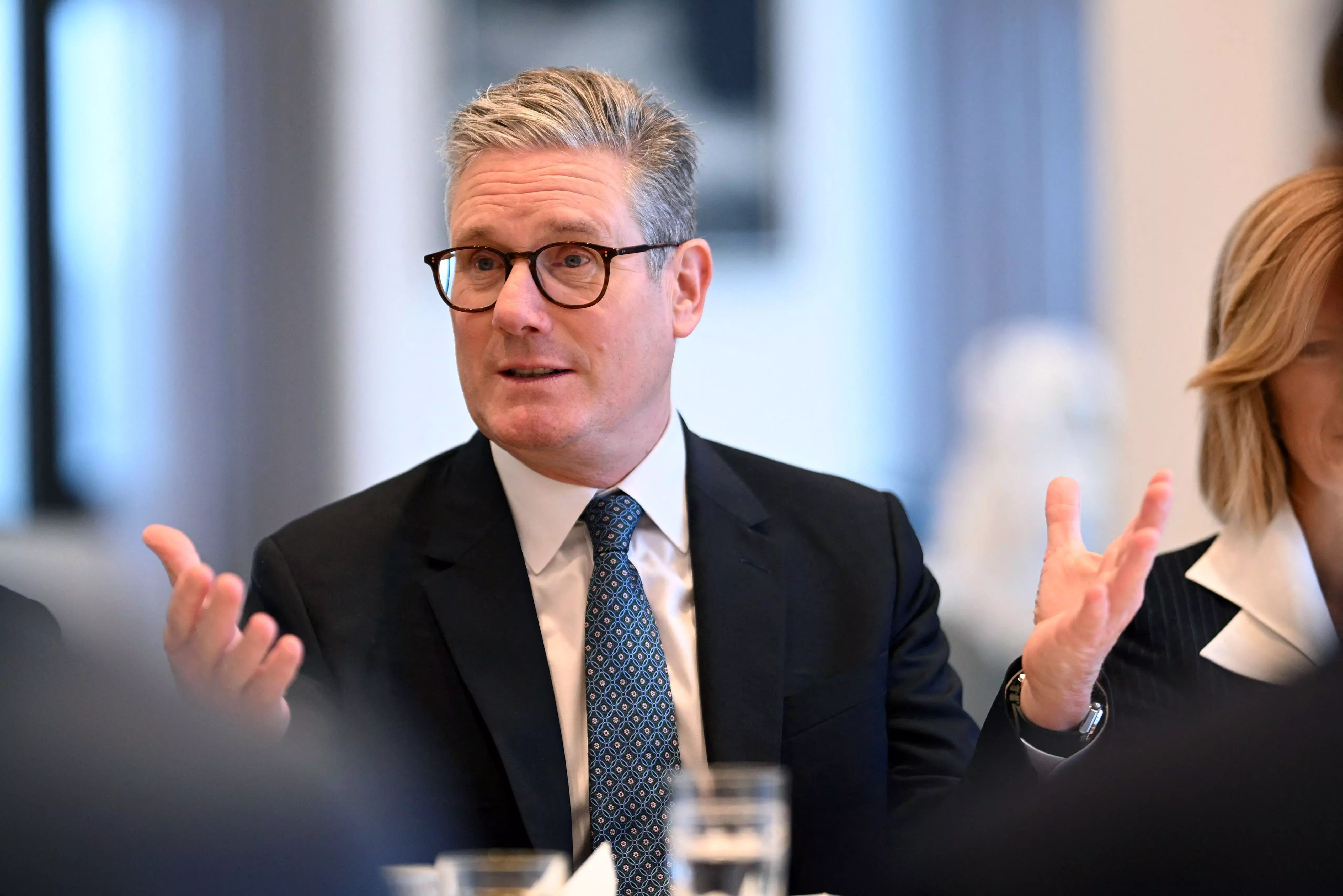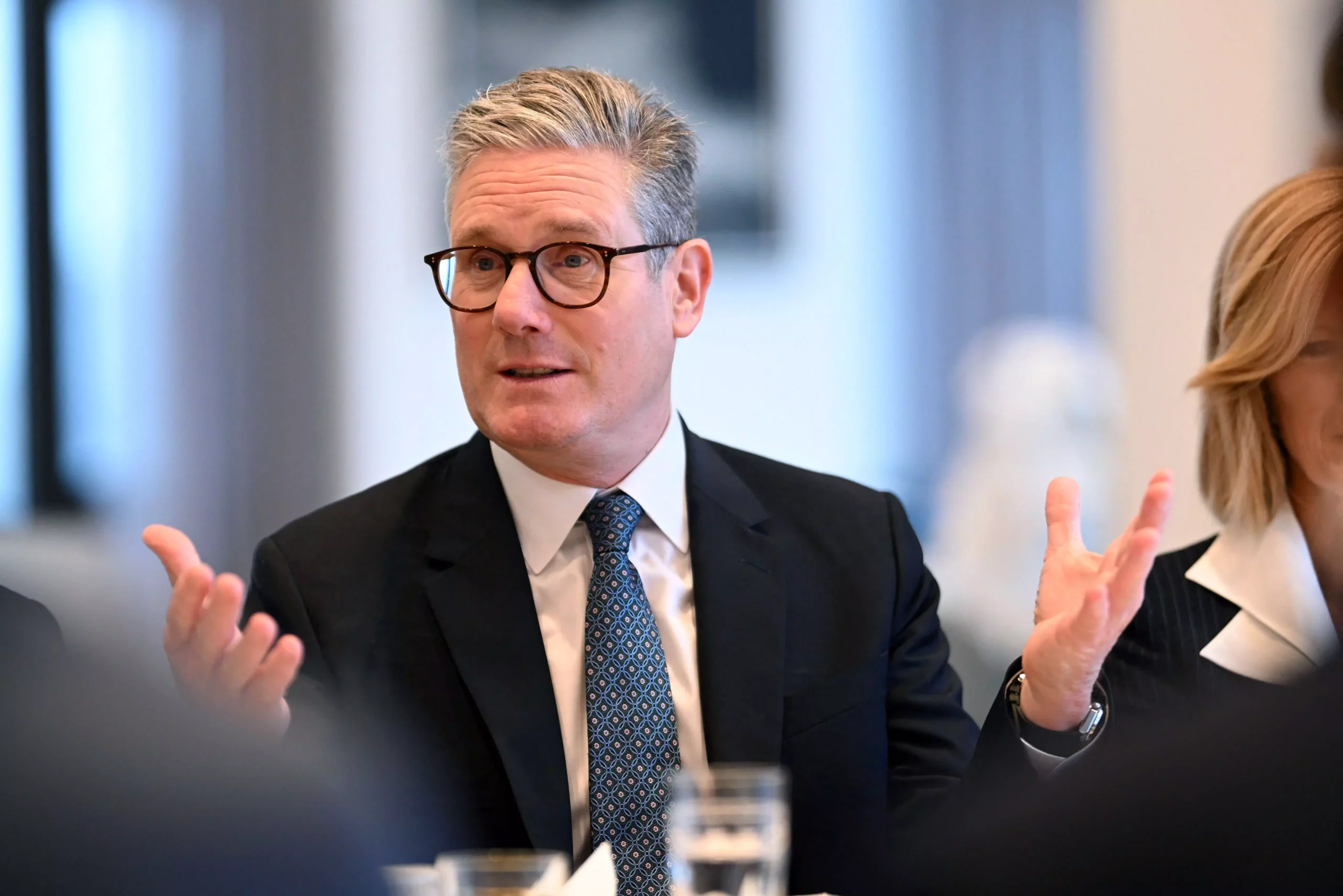
India’s home minister Amit Shah would have dismissed them as “termites”. Being equally unsympathetic to those who take incredible risks to better themselves, Britain’s new Prime Minister, Sir Keir Starmer, promises to “shut down the smuggling routes” and “smash the gangs” trafficking in human beings. To that end, he has appointed a former senior police officer, Martin Hewitt, as border security commander with orders to lead a “new era of international enforcement”.
This isn’t the only controversy to darken Sir Keir’s horizon. His cancellation of the winter fuel allowance paid to pensioners, the £170,000 salary — £3,000 more than he draws — sanctioned for his chief of staff, Sue Gray, not declaring clothes worth £5,000 that the Labour peer Lord Alli gifted to his wife, accepting all manner of freebies, the list just goes on. But the international overtones of the “termites” controversy affects Britain’s image and identity.
The bulk of migrants — legal or otherwise — are from the poorer Afro-Asian nations targeting the rich West. Can they be permanently excluded from the world’s wealth without making a mockery of globalisation? Moreover, any battle against them can lead to a head-on clash with aspiring Indians who comprise the world’s largest diaspora.
For all Prime Minister Narendra Modi’s boasts about India being a “Vishwa Guru”, 2.5 million Indians happily escape from the country annually. William Dalrymple’s new book, The Golden Road: How Ancient India Transformed the World, flatters them by embellishing India’s history “with visions of a fantastic, and technologically advanced, Hindu past”, as a Guardian reviewer puts it, but the stark truth is that the number of Indians who risk the dangerous waters of the English Channel in small and fragile boats soared by 60 per cent in 2023.
Britain is rapidly becoming an immigrant’s paradise. Immigration exceeded emigration by more than 100,000 every year between 1998 and 2020.
Nearly 41 per cent of London residents were born outside the UK. Six million people (nine per cent of the total) living in the UK in 2020-2021 were foreigners, not even holding dual citizenship.
The challenge being global, so must the solution be. Under pressure to take in more foreign migrants, Sir Keir hopes for a collective European strategy to repel unwanted foreigners. Faced with a somewhat different demographic problem, Mr Modi is trying to help Hindus, Sikhs, Buddhists, Jains, Parsis and Christians (everyone except Muslims!) without involving the countries — Afghanistan, Bangladesh and Pakistan — where they are stranded.
One of Sir Keir’s first foreign trips after moving into Number Ten was to Rome where he paid tribute to the Prime Minister, Giorgia Meloni, who is described as the first far-right Italian leader since Benito Mussolini. Italy and the European Union have signed treaties to give financial support to Tunisia – a take-off point for migrants — in return for a crackdown on people embarking for any European Union member nation. The EU agreed in 2023 on a package including 900 million euros as general economic aid for Tunisia and another 105 million euros for measures to stem migration.
Another deal with Tirana, the capital of neighbouring Albania, for what is called “offshoring” includes setting up two migration processing centres in Albania, intercepting and screening 36,000 refugees, and sending back those who are not considered suitable for absorption in Italy. Ms Meloni’s government has also provided Libya — also a popular exit point — with five “fully equipped” boats to intercept migrants at sea.
As a result, the number of illegal migrants who crossed the Mediterranean last year to Italy fell by 62 per cent, from 118,000 to 44,500. The British PM calls the achievement “remarkable” and “profound”.
He took Mr Hewitt, the border force commander, with him to Rome to show he means business. But media reports indicate that in Mr Hewitt’s view, strong-arm methods will not succeed without supporting deterrent measures. Many even feel that the plan devised by Britain’s previous Tory governments under Boris Johnson and Rishi Sunak to send asylum-seekers to Rwanda may have acted as a deterrent. The scheme, which Mr Starmer lost no time in abrogating, cost the UK at least £318 million.
Sooner or later the organisers may have to face up to the fact that the route the migrants take and the help they may or may not receive en route matters less than where they come from. That’s why India looms so large on the illicit migration map. According to the British government, 1,192 Indians arrived in the UK illegally in small boats in 2023. Indians now also make up the third-largest group of undocumented immigrants in the United States, says the Pew Research Centre, putting their number at 725,000.
It’s a mistake to think of these migrants as poor. The poor in South Asia cannot afford to take a flight. Most migrants are relatively well off by Indian standards and hail from Punjab and Gujarat, two of India’s more prosperous states with a long history of migration to the US. They follow what traffickers call the “donkey route” — a circuitous, perilous multi-hop journey — to avoid long delays on account of a massive backlog of immigration cases involving years of waiting.
The US Customs and Border Protection service reported nearly 97,000 encounters involving Indians in 2023. Significantly, those along the northern border skyrocketed from around 2,200 in 2021 to more than 30,000 because many illegal migrants to the US now find Canada a quicker and safer option than the traditional donkey route via Mexico. Justin Trudeau’s desire to attract international students made it easier for Indians to obtain Canadian visas despite his problems with Mr Modi. With many more Indians now crossing the northern US border than the southern, 22,399 encounters were reported in the first six months of 2023 in the north, against only 11,053 in the south.
This shift can extract a tragically high price. The bodies of eight migrants, including a family of four from India, were discovered in March last year in the St. Lawrence River, which they had tried to cross from Canada. Similarly, a family of four from Gujarat froze to death in January 2022 only a few feet from the US border.
With Sir Keir Starmer determined to prevent surreptitious Channel crossings, Giorgia Meloni and her EU partners already obstructing illegal trips across the Mediterranean, and all US presidential candidates committed to banning illicit entry, the confrontation might position a boastful India against a law-abiding world.
